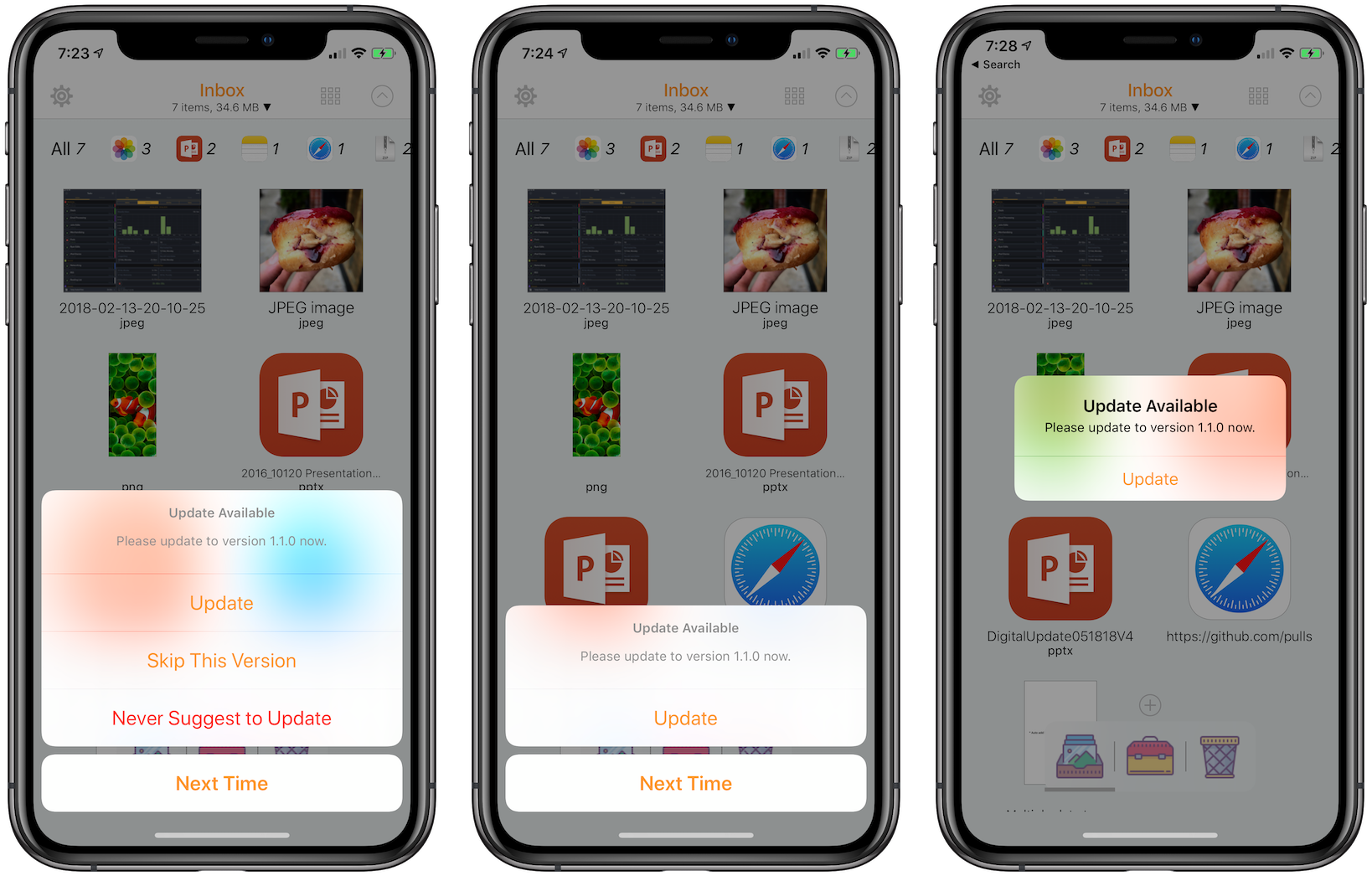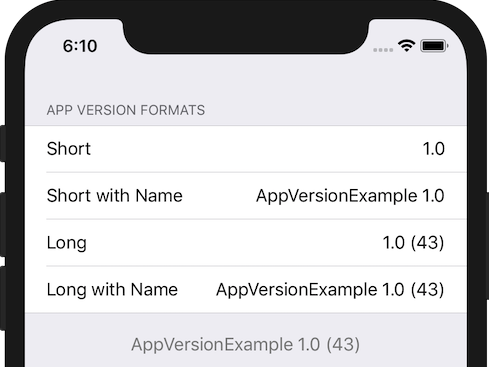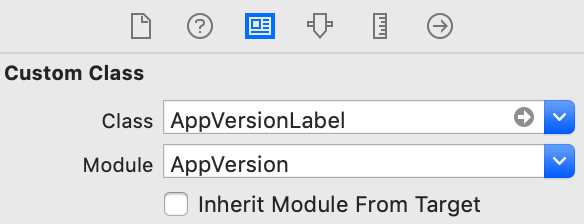📲 App Version 





Don't let you users to get stuck on outdated version of your app.
- Automatic update tracking using Semantic Versioning
- Buil-in UI alerts
- Rich set of delegate methods
- Fully documented
- Good test coverage
- Small code base
- No external dependencies
- Available through all major package managers: Cocoapods, Cartage and Swift Package Manager
Table of Contents
Screenshots
Update UI alerts
- Skippable alert
- Unskippable alert (Default)
- Blocking alert
Custom UILabel and UITableView footer
- Four formatting options available(
AppInfo.VersionFormat):- Short(version only): 1.0.0
- Short with app name: AppVersion 1.0.0
- Long(version + build): 1.0.0(42)
- Long with app name: 1.0.0(42)
Requirements
- Swift 4.2
- Xcode 10 or greater
- iOS 11.0 or greater
Installation
CocoaPods
AppVersion is available through CocoaPods. To install it add the following line to your Podfile:
pod "AppVersion.swift"Carthage
If you’re using Carthage, add AppVersion to your Cartfile:
github "amebalabs/AppVersion"
Make sure to add AppVersion.framework to "Linked Frameworks and Libraries" and "copy-frameworks" Build Phases.
Swift Package Manager
TBD
Usage
Setup AppVersion in your AppDelegate.swift, code is self-explanatory:
func application(_ application: UIApplication,
didFinishLaunchingWithOptions launchOptions: [UIApplication.LaunchOptionsKey: Any]?) -> Bool {
let appVersion = AppVersion.shared
appVersion.updateFrequency = 1 // I want to check for updates once a day
appVersion.alertsEnabled = true // I want UI alerts, presenting update options
appVersion.alertType = .skippable // I want UI alert to include "Skip" button
appVersion.neverEnabled = true // I want UI alert to include "Never" butoon
appVersion.alertPresentationStyle = .actionSheet // I want UI presented as an actionSheet
appVersion.checkBeforeUpdatePresented = { // I want to present UI only if App Store version has more than 1 review and average rating is higher than 3
return (appVersion.appStoreVersionInfo?.ratingsCount ?? 0) > 1
&& (appVersion.appStoreVersionInfo?.averageRating ?? 0) > 3
}
appVersion.run()
return true
}
Delegates
Each meaningfull update tracking event provided as delegate (AppVersionDelegate). All delegates are optional, so you can implement only the one you need.
Delegates can be used even if UI Alerts are disabled, for example you can choose to implement your own UI.
Please refer to documentation for more details.
UILabel and UITableView
Using Storyboard
Create AppVersion label in storyboard: Drag UILabel on your storyboard and set class to AppVersionLabel
After that set format name in Attributes Inpector:

Create AppVersionLabel programatically:
let versionLabel = AppVersionLabel()
versionLabel.format = format
versionLabel.textAlignment = .center
versionLabel.textColor = .red
Add version in UITableView footer:
tableView.addVersionFooter(with: .longWithName)or
tableView.addVersionFooter(with: .long, alignment: .right, textColor: .lightGray, footerHeight: 22)
Author
- Website: Ameba
- Gtihub @amebalabs
License
AppVersion is available under the MIT license. See the LICENSE file for more info.






